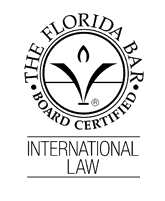
The Federal Maritime Commission (FMC) final rule governing licensing has been in effect since December 9, 2016. Under the new final rule, the FMC is requiring Ocean Freight Forwarder (OFF) and Non Vessel Owning Common Carrier (NVOCC) licenses to be renewed every 3 years using the new online license renewal system.
The FMC already sent out the first 146 notifications. DTL clients who are FMC Licensees may face cancellation if they fail to renew or update their license every three years. The great news is, now you are able to leave the heavy lifting to DTL.




